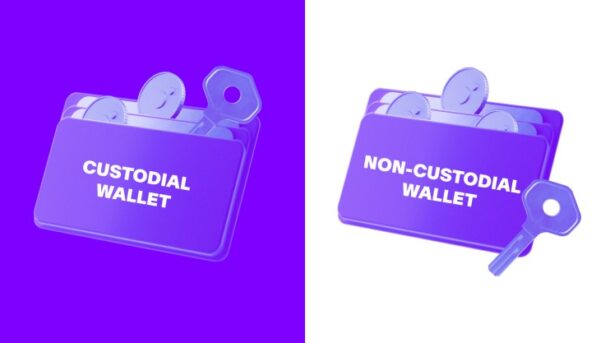A custodial wallet is a type of cryptocurrency wallet that is managed and controlled by a third-party service provider. In this type of wallet, the service provider takes custody of the private keys and manages the storage and security of the digital assets on behalf of the user.
How do Custodial Wallets work?
Custodial wallets work by allowing users to store their cryptocurrencies with a third-party service provider. The service provider generates a private key on behalf of the user and stores it on their servers. The user can then access their digital assets through an online platform or a mobile application provided by the service provider.
With a custodial wallet, the user does not have direct control over their private keys. The service provider manages the security of the wallet, including backups and recovery options. In return for this service, the service provider may charge a fee.
Examples of Custodial Wallets
There are many examples of custodial wallets available in the market. Some popular examples include:
- Coinbase: Coinbase is a popular custodial wallet and exchange that allows users to buy, sell, and store cryptocurrencies such as Bitcoin, Ethereum, and Litecoin.
- Binance: Binance is another popular custodial wallet and exchange that supports a wide range of cryptocurrencies, including Bitcoin, Ethereum, and Binance Coin.
- Robinhood: Robinhood is a custodial wallet and exchange that allows users to trade cryptocurrencies, as well as stocks and other assets.
- Gemini: Gemini is a custodial wallet and exchange that is known for its high level of security and regulatory compliance. It supports a range of cryptocurrencies, including Bitcoin, Ethereum, and Litecoin.
- Kraken: Kraken is a custodial wallet and exchange that supports a wide range of cryptocurrencies and is known for its advanced trading features and security measures.
These are just a few examples of the many custodial wallets available in the market. Users should do their own research and choose a wallet that meets their needs and provides the necessary security features for their digital assets.
Advantages of Custodial Wallets
- Convenience: Custodial wallets are easy to use, and users do not have to worry about managing their private keys or the security of their digital assets.
- Support: Custodial wallets are typically provided by established companies with a good reputation in the industry. Users can rely on their customer support for assistance with any issues that may arise.
- Recovery options: In case of a lost or stolen password, many custodial wallets provide recovery options to help users regain access to their digital assets.
Disadvantages of Custodial Wallets
- Security: Custodial wallets are centralized and rely on a third-party service provider to manage the security of the wallet. If the service provider is hacked or compromised, the user’s digital assets may be at risk.
- Lack of control: Custodial wallets do not provide users with complete control over their digital assets. The user must trust the service provider to manage their digital assets on their behalf.
- Fees: Custodial wallets may charge fees for their services, which can add up over time.
Conclusion
Custodial wallets offer convenience and support to users who are not interested in managing the security of their digital assets themselves. However, users must be aware of the risks involved in trusting a third-party service provider with their private keys and digital assets. In contrast, non-custodial or self-custodial wallets provide users with greater control and security over their digital assets. Ultimately, the choice between a custodial or non-custodial wallet depends on the user’s personal preferences and priorities.




